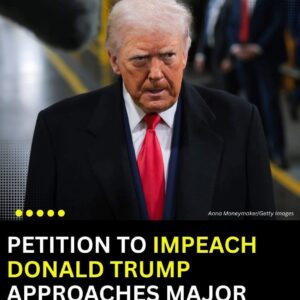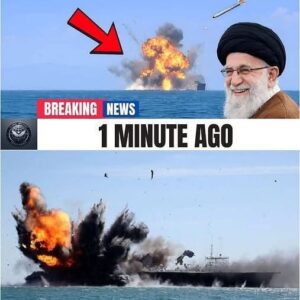When federal prosecutors filed a new indictment on Thursday, the political world stopped mid-stride. The charges weren’t small, procedural footnotes buried in paperwork. They were sweeping, direct, and aimed squarely at a former president: conspiracy to defraud the United States, conspiracy to obstruct an official proceeding, obstruction of and attempt to obstruct that proceeding, and conspiracy to violate rights guaranteed under the Constitution.
The indictment laid out, in dense legal language, a story that had been building since the final weeks of the 2020 election — a story prosecutors now argued was not just political theater, but criminal conduct.
To understand the weight of the charges, you have to start with the atmosphere after the election. The country was split in half, tension humming in the air like a live wire. While votes were still being counted, claims of fraud surged — amplified, repeated, and cemented into the minds of millions of supporters. Press conferences, late-night tweets, interviews, legal filings, and public rallies all revolved around one message: the election was stolen.
But prosecutors say that inside the campaign and the administration, the picture was very different. According to the indictment, senior advisors, cybersecurity officials, campaign lawyers, and state-level contacts repeatedly told Trump there was no evidence supporting the fraud claims he continued to promote. Despite that, the messaging didn’t change. Instead, it escalated.
The core of the fraud charge centers on this alleged disconnect — that Trump, fully aware the claims were unsubstantiated, pushed them anyway as part of a plan to overturn the results. The indictment frames the actions not merely as political pressure, but as a deliberate attempt to deceive the public and government institutions responsible for certifying the election.
The next layer of the case focuses on Congress’s certification of the electoral vote, scheduled for January 6. What’s normally a symbolic, procedural event became the target of intense political maneuvering. Prosecutors outline several efforts designed to stop or delay that certification.
One involved assembling slates of “alternate electors” in several swing states. These individuals would sign documents claiming they were the legitimate electors, despite their states already certifying results in favor of Joe Biden. The indictment claims this was not a symbolic protest but an intentional effort to create confusion, pressure lawmakers, and possibly shift the outcome.
Another branch of the alleged effort involved pressuring state officials — governors, secretaries of state, and election boards — to overturn or reexamine results they had already certified. Some phone calls from that period are already public. The indictment uses them to paint a picture of a coordinated push: calls, meetings, and messaging aimed at convincing state authorities to reject certified results or “find” votes to change them.
The obstruction charges are tied directly to the events leading up to January 6. Prosecutors argue that the intent was to disrupt the joint session of Congress. While the former president did not personally breach the Capitol, the indictment claims that his actions — and continual insistence that the certification could be stopped — played a central role in creating the environment that led to the riot.
The most unusual charge might be the conspiracy to violate civil rights. It’s an old law originally written to protect the voting rights of newly freed slaves after the Civil War. In this case, prosecutors say the alleged attempts to overturn lawful election results amounted to an effort to deprive millions of voters of the value of their ballots — a modern application of the same principle.
While this all unfolded, Trump maintained publicly that he was doing nothing wrong. He insisted he was defending the integrity of the election, not attacking it; that he was standing up for voters, not undermining them. He framed the investigations and lawsuits as political persecution, a coordinated attempt to silence both him and the movement behind him.
His supporters largely echoed that sentiment. Many saw the investigations as proof of a biased system, one that had targeted him since the moment he stepped into office. To them, the charges were just another chapter in a long-running feud between Trump and the federal establishment.
His critics, on the other hand, argued the opposite: that no president — past or present — should be immune from accountability. They claimed the charges weren’t about politics, but about preserving the basic rules that keep elections functioning in the first place.
Between these two camps stood the justice system, forced to navigate a case more politically volatile than anything in modern history. Prosecution became a complicated balancing act: handling evidence, testimony, and legal strategy under the glare of a nation already divided.
From a legal standpoint, conspiracy charges can be easier to prove than many people think. The government doesn’t need to show the conspiracy succeeded — only that an agreement existed and steps were taken to carry it out. That means emails, texts, drafts of statements, internal memos, and testimony from aides could all become central pieces of evidence.
But the case still faces significant hurdles. Prosecutors must show intent — that Trump genuinely knew the claims of fraud were false and proceeded anyway. His defense will almost certainly hinge on the idea that he believed, sincerely or otherwise, that irregularities existed. If he truly thought the election was stolen, then the foundation of the charges weakens.
With the indictment filed, the next phase becomes unavoidable: hearings, motions, witnesses, and an avalanche of media coverage. Every filing will be dissected. Every hearing will be clipped and shared online. Every witness leak will become a talking point. The trial won’t unfold in a vacuum — it will happen in front of a country already saturated with opinions about the man at the center of it.
And yet, beyond the politics, beyond the noise, the case ultimately comes down to a simple question: when a president refuses to accept an election result, and uses the power of his office to fight it, where is the line between political pressure and criminal conduct?
The courts — not cable news, not rallies, not social media — will have to answer that.
Whatever the outcome, the country is bracing for a long fight. A former president facing felony charges is unprecedented. A nation watching both justice and politics collide in real time? That’s the story unfolding now, one hearing at a time.



